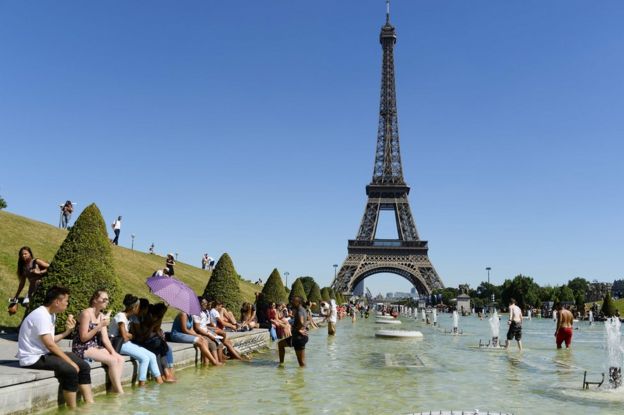
Paris is on course to welcome more
tourists this year than ever before after a bumper first half, a senior
official said.
However, some would-be visitors might think again after
the Barcelona attack.
The Paris region registered 16.4 million arrivals in the six months to June, its tourist board said on Tuesday.
That
was the most in any first half of the year since current records began
in 2008, confirming a strong recovery from a lull that followed Islamist
attacks in the French capital in November 2015 that killed 130 people.
Frederic
Valletoux, president of the Paris region tourist board, said a strong
July and August, and good bookings for September meant the region could
see 32-34 million tourist arrivals this year compared with 30 million in
2016 and 32 million in 2015.
It was too early
to say if Thursday's attacks in the Catalan capital and the coastal
resort of Cambrils would weigh on that forecast.#
"(This) could be a record year but let's not get carried away," he told a news conference.
"Now
will Barcelona have an impact on other destinations like Paris? It's
hard to say. It's Europe. The international situation remains turbulent
and terrorism a daily threat."
The 10.2 percent
year-on-year bounce in first half arrivals was driven by a 14.9 percent
rise in foreign tourists, led by Americans and Chinese. Fewer Britons
visited as the pound lost value amid uncertainties over Brexit.

Among
reasons for the upturn, tourism officials cited government financing
for marketing campaigns abroad and enhanced security measures in Paris.
Tourism generates over 7 percent of France's
national income. In the Ile de France region, which includes Paris - one
of the world's most visited cities - about half a million people have
jobs linked to tourism.
The French revival is
not confined to Paris. Visitor numbers nationwide are seen rising to 89
million in 2017 from 83 million last year. France targets 100 million
visitors annually by 2020.
Valletoux
said it was likely that Barcelona's tourism sector would now take a
hit, but the experience of Paris and New York showed the Spanish city
would recover.
"One can expect Barcelona to
experience some slowdown. It took three years for New York to bounce
back after the Sept 11 attacks, for Madrid it was a year (after the 2004
commuter train bombings) and for Paris also a year," Valletoux said.
The
Barcelona attack was the latest of a spate across Europe in the past 13
months in which militants have used vehicles as weapons, killing nearly
130 people in France, Germany, Britain, Sweden and Spain.




0 Comments